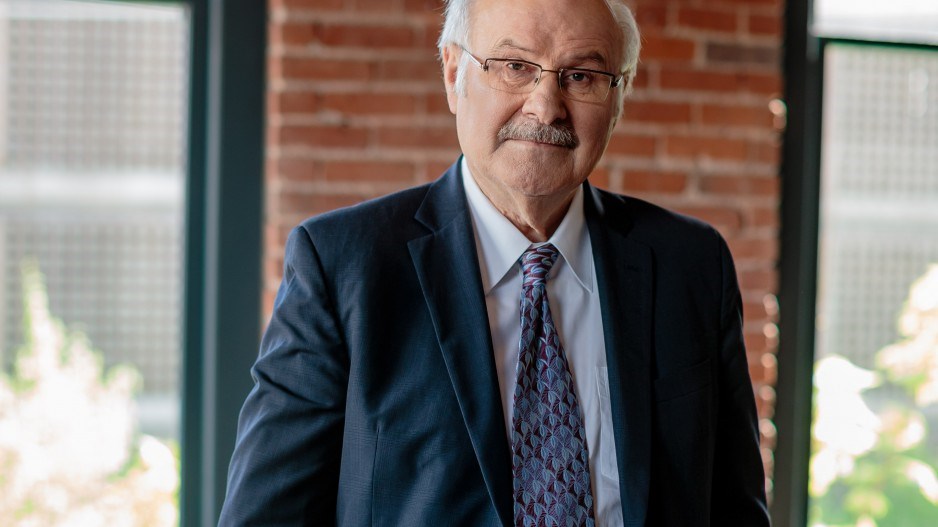On December 4, the stock of small B.C. marijuana startup True Leaf Medicine Int. Ltd. (CSE:MJ; OTCQB:TRLFF) shot up 23%, to $1.18 from $0.96.
It has since settled back to a little over $1 per share.
Investors were reacting to news that the Securities and Exchange Commission in the U.S. had approved True Leaf for a Regulation A+ initial public offering that will allow the company to raise up to $10 million through crowdfunding.
In the past, if a junior mining company listed on the Canadian Securities Exchange (CSE) and loosely regulated OTC exchange had had such a stock surge, especially in reaction to plans to raise money in such an unconventional way, it might have raised red flags.
After all, the OTC is viewed by some as a last resort for sometimes dubious companies that can’t qualify for a listing on more highly regulated stock exchanges, like the Nasdaq and Toronto Stock Exchange. And crowdfunding was initially viewed by some as an investment vehicle for unsophisticated investors.
But investment newsletter writer Ivan Lo of Equedia Investment Research is bullish on the marijuana sector and sees no reason why crowdfunding should be viewed as the poor man’s stock investment vehicle.
“How is that any different than someone being able to buy shares in the open market, except for the fact that now the company has access to capital that they wouldn’t have access to if the shares were bought on the open market?” he asked.
“I’m a big supporter of marijuana and marijuana stock. I do believe there will be a lot of room still for growth.”
Co-listing on both the CSE and OTC and going the crowdfunding route in the U.S. gives the company greater access to U.S. investors.
“It allows us to raise more money,” said True Leaf founder and CEO Darcy Bomford. “It allows us to raise up to $50 million a year under this format. It also gives us a pathway to uplift to a larger market like Nasdaq, when we’re ready.”
The marijuana space is about to get crowded, and Lo predicts a series of mergers and acquisitions, with the smaller players being gobbled up by the larger and better-financed companies.
One of the reasons True Leaf appears to have caught the attention of investors is the novelty of one of its business divisions: hemp-based snacks and other products for dogs, which is already generating revenue for the company.
The company is still awaiting federal approvals to grow medical marijuana and needs to raise capital to buy a 40-acre site it has optioned in Lumby, B.C., where it plans to build an indoor marijuana grow operation.
Bomford has a background in the pet-food business, and because hemp-oil-based food products are already legal, he decided to create a business division that would make hemp-based products for dogs to generate revenue while it waited for federal approval on the medical marijuana side of the business.
As of the end of September 2017, the company recorded $762,228 in sales in the first half of 2017, according to the company’s most recent financial statements.
True Leaf’s chairman is former BC NDP premier Mike Harcourt, who has helped the company navigate the corridors of Ottawa.
“I’ve been really involved for the last few years in helping us get through the quite rigorous process of getting Health Canada approval,” Harcourt said.
When True Leaf went public, it was still working on getting a federal licence, so it did not qualify to list on the TSX Venture Exchange, which has stricter guidelines for marijuana companies, so it listed on the CSE.
To gain greater access to American investors, it also listed on the OTC and decided to try a novel approach to raising equity: crowdfunding.
Under the terms of the Regulation A+ initial offering, launched November 30, True Leaf is offering stock at $0.70 per share, with a minimum purchase of $350 (500 shares).
As of December 6, True Leaf stock was trading at $1.02, and US$675,416 had cleared through True Leaf’s invest.trueleaf.com crowdfunding site.
Money raised through the offering will be used to kick-start its Lumby production facility.
“We hope to have the facility up and running and growing product by April, May,” Bomford said.
One problem for Canadian marijuana companies is that, if they have any American interests in the growing, distribution or sale of marijuana, they could run afoul of Canadian securities and stock exchange rules, because even though it is legal in a number of states, cannabis is still technically illegal under U.S. federal law.
Even some hemp-based products that contain cannabidiol (CBD) might be deemed illegal under federal laws in the U.S.
Bomford said the hemp pet products it sells in the U.S. – as well as Europe – are legal because they don’t contain CBD. It buys the hemp seed from producers in Canada, and ships it to the U.S. to a processor that makes the products for True Leaf.
“We’re completely unaffected by those [securities] guidelines because we don’t touch the leaf in the U.S.,” Bomford said. “We only market 100% legal hemp seed products for pets. And we don’t touch any medicinal cannabis or hemp leaf in the U.S.”




